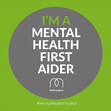|
Blogging is not for earning, it's about helping others with the knowledge that you have. Sayed Faizan Ali |
|
According to Brian Tracy, more than 99% of adults experience both these fears of failure and rejection. They are caught in the trap of feeling, “I can’t, but “I have to,” “I have to,” but “I can’t.”
The fear of rejection and failure is the single greatest obstacle to success in adult life. Taken to its extreme, we become totally preoccupied with not making a mistake, with seeking approval for security above all other considerations. Link to full article at the bottom. Let's start by looking at what fear actually is. It's a funny thing fear, there are only two natural fears that we're all born with. One is the fear of falling and the other is the fear of loud noises. All other fears are learned as we go through life. You can have fears that stem from a self-limiting belief, as in you don't believe you can do something so you're afraid of it. Quite often if somebody's says, "I can't", that means there is a fear around with whatever the action is. Fear can also be mixed up with shame and guilt, so it's quite a complex area. But let's just have a look at what fear can do to your body. Why is it so important that we get to grips with our fears? Fear will produce various reactions in your body. It will increase your blood pressure. It will increase your heart rate. It will increase the chemicals that are going around your body, which themselves have impacts. You'll will end up with high levels of cortisol in your body, which is the stress hormone and can lead to bad sleep. You'll have high levels of adrenaline because you're in the fight or flight mode. You'll get tense muscles, your blood sugars will increase, your non-essential systems such as digestion and the immune system will shut down because your body is focusing on what it's got to do and you also may have trouble focusing on small tasks. The brain is focusing on the big picture it's not looking at the small tasks. In the past, before life got complicated, when we are physically threatened, we would have the fight or flight response, do whatever was necessary and then calm back down again and it had no long-lasting impact on the body. However, what's happened to us as humans is that we have developed these fears that we have learned and that means that some people live in a state of fear. So, imagine what it does to your body if you are constantly struggling with high blood pressure from fear. If your heart is constantly racing. If you constantly have bad sleep. If you constantly have tense muscles, high blood sugar. If your non-essential systems shut down for extended periods of time, such as digestion and the immune system, imagine the problems that could lead to. Finally on a level of performance at work or even in your personal life, if you can't focus on the small tasks then that's going to become an issue as well. There’s been quite a lot of research done about the different types of people and how they deal with fear. In Brian Tracey's book, Maximum Achievement, he cites a university science experiment that was conducted called ‘Evaders and Confronters’. The cohorts were given a series of questions about how they dealt with fear and then they were divided into two groups, the confronters, and the evaders. The confronters confronted their problems. When they were put in the situation where they had an electrode on them that was going to give them an electric shock to their finger every 60 seconds, they clock watched, they counted the seconds on the clock, they prepared mentally for the shock. It was discovered that their heart rates and their blood pressure went up slightly and then it went back down again, and there was relatively little impact on the body. Now the evaders, they tried to trick themselves into believing there wasn't going to be a shock. They refused to acknowledge that this was going to happen. They looked away from the clock, they wouldn't look at the source of the problem and they displayed avoidance behaviours. Their blood pressure and heart rate became very elevated. They suffered from anxious reactions, they were nervous, they were on edge. Not only did they have that throughout the experiment but then after the experiment when they walked away the evaders who were still in denial, their heart rate and blood pressure was 30-40% higher than the confronters, and that continued for up to four hours. Whereas the confronters left the room and their blood pressure and heart rate returned to normal very quickly. This clearly shows that depending on how you deal with fear will depend on its impact on your health long-term. www.briantracy.com/blog/personal-success/fear-of-rejection/
0 Comments
|

 RSS Feed
RSS Feed





